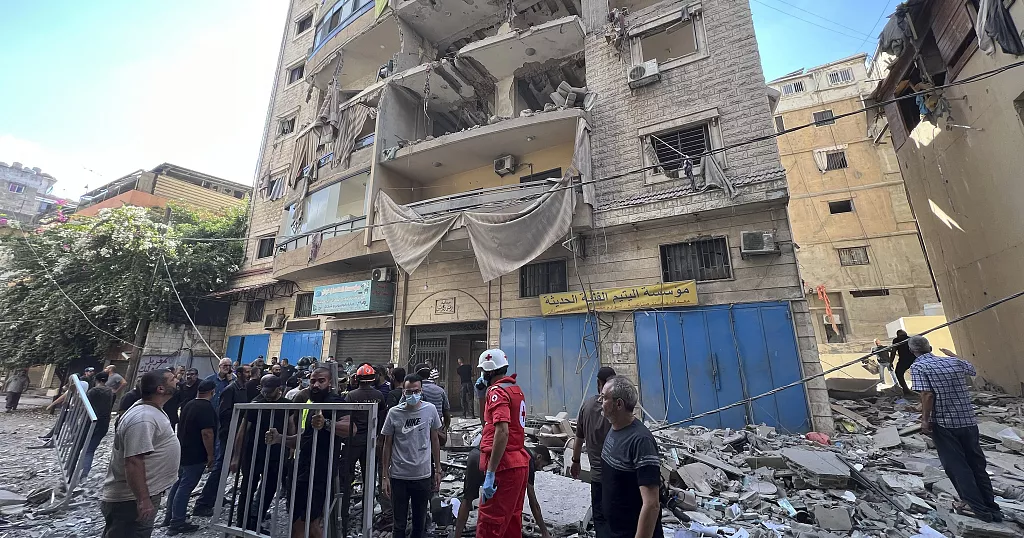Hezbollah Confirms Death of Senior Official Amid Escalating Conflict
3 min read

Hezbollah, the Iran-backed Lebanese militant group, has announced the death of another senior official, Nabil Kaouk, following an airstrike attributed to the Israeli army. This incident marks the latest in a series of significant losses for Hezbollah, with multiple senior commanders reportedly killed within just over a week.
Kaouk, who served as the deputy head of Hezbollah’s Central Council, had a long history with the organization. He previously held the position of military commander in southern Lebanon and was notably active during the 2006 conflict with Israel. His extensive experience made him a key figure within the group, and his death is seen as a significant blow to Hezbollah’s leadership.
The announcement of Kaouk’s death comes on the heels of the loss of Hassan Nasrallah, the group’s leader, prompting Lebanon to declare three days of mourning in his honor. This sequence of fatalities highlights a troubling trend of escalating violence between Hezbollah and Israel, intensifying fears of further conflict in the region.
In addition to Kaouk, Hezbollah confirmed the death of another senior commander, Ali Karaki, who was also killed in the airstrike that took Nasrallah’s life. The loss of these high-ranking officials underscores the challenges facing Hezbollah as it navigates this period of heightened aggression.
Tensions between Hezbollah and Israel have significantly escalated in recent days. Israeli airstrikes have reportedly resulted in hundreds of casualties in Lebanon, amplifying the already fraught situation. Earlier in the week, Hezbollah claimed responsibility for launching a missile aimed at the headquarters of Israel’s Mossad intelligence agency near Tel Aviv; however, the missile was intercepted by Israeli air defenses, preventing any damage.
The ongoing hostilities reflect a broader context of conflict in the region, with Hezbollah’s actions often seen as part of a larger narrative involving Iranian influence and its strategic goals in the Middle East. The group’s military capabilities and willingness to engage in direct confrontations with Israel have been a point of contention and concern for both regional and global powers.
As Hezbollah grapples with the implications of these losses, the group’s leadership will likely face increased pressure to respond to Israeli actions while managing internal and external expectations. The killing of Kaouk and other senior figures may prompt a reassessment of their military strategy and operational tactics, as they seek to maintain their influence amid mounting challenges.
In light of these developments, the situation remains precarious. The potential for further escalation is high, and the international community is watching closely, concerned about the ramifications for regional stability. As both sides prepare for possible future confrontations, the losses sustained by Hezbollah could reshape the dynamics of power in the area.
The conflict, characterized by retaliatory strikes and high-stakes military maneuvers, raises questions about the prospects for peace and the path forward for Lebanon. The increasing death toll and destruction highlight the urgent need for dialogue and conflict resolution mechanisms, as the cycle of violence threatens to engulf not just Lebanon but the broader region as well.
As Hezbollah mourns its fallen leaders, the impact of these deaths will reverberate throughout the group and its operations. How Hezbollah chooses to respond will be crucial in determining its future trajectory and the overall security landscape in Lebanon and beyond.
In summary, the recent airstrikes resulting in the deaths of Nabil Kaouk and other high-ranking Hezbollah officials reflect a significant escalation in the ongoing conflict with Israel. With the region on edge and the potential for further violence looming, the need for careful navigation and strategic responses becomes ever more critical. The loss of key leaders poses challenges for Hezbollah as it faces a rapidly evolving and increasingly hostile environment.